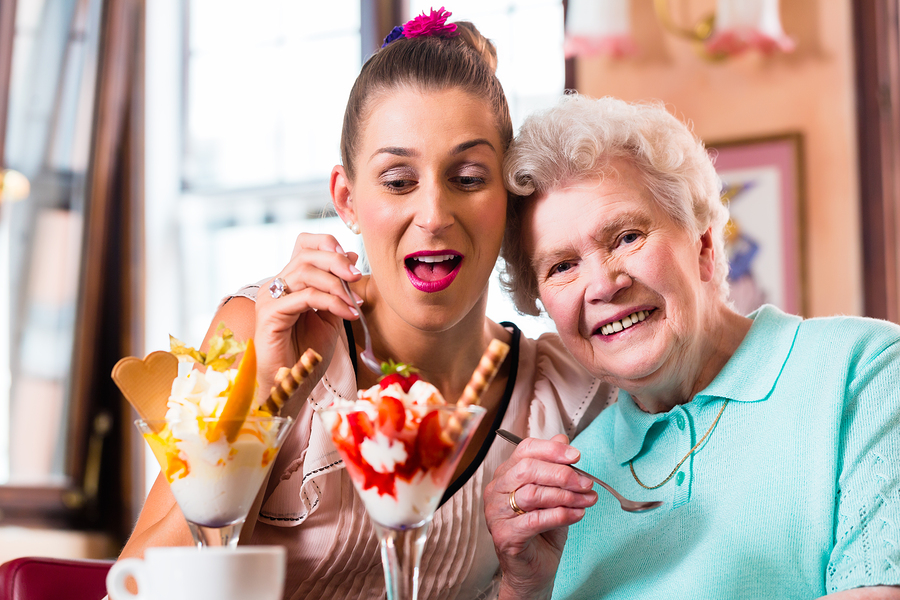March 4, 2021

Have you noticed that your mother or grandmother has lost weight? Does she never seem to eat a complete meal? Does she frequently say, “Oh, I’m just not hungry today”?
Loss of appetite could become a health problem if it is not one already. If an elderly individual is not getting enough nutrients, he or she is at a higher risk for infections, because the immune system needs fuel to function optimally.
There is also a higher risk for loss of muscle mass and bone density. These losses put seniors at a higher fall risk and also more damage if there is a fall. Poor muscle tone also negatively impacts quality of life on a daily basis. Without strong muscles, elders can become unable to cook, clean, and bathe themselves. Seniors who don’t eat enough are more likely to end up in the hospital.
A sudden loss of appetite is cause for scheduling a doctor’s visit. So many things can cause lost appetite that loved ones should avoid trying to determine what caused it themselves. That said, some very common underlying health issues that can cause appetite loss are:
Fortunately, there are many treatments for appetite loss. If a senior’s mouth is too dry, she can take a saliva replacement product. Such products are sometimes referred to as “mouth moisturizers.”
If a senior has lost some sense of taste and smell, it’s time to enhance the flavor of her food. While excess salt may not be a good idea, home care providers can be called on to add fresh peppers, spices, and cheese sauces to meals. Cooking with the patient’s favorite foods is also common sense.
–Use brightly colored dishes. This was found to help nursing home residents maintain good appetites. And, if your loved one has a visual impairment, brightly colored plates, bowls, and cups could improve the visual appeal of the food.
–Serve high-protein liquids like chicken stock, low-fat milk, yogurt drinks, and nutritional shakes. Studies show that these liquid foods don’t trigger a sense of fullness like solid food. So, by incorporating these liquid proteins, you may be able to get your loved one to take in nutrients from both solid food and liquid food.
But it can be remedied in a number of different ways. Home care aides can really make a difference by paying attention to what foods an elderly person will still eat, preparing foods with enough flavor, and pushing a mix of liquid and solid proteins. If you have not yet hired professional home care, you may want to consider it.
If you or an aging loved-one are considering hiring a Caregiver in Edgewood, PA, please contact the caring staff at In-Home Quality Care today. Serving the Greater Pittsburgh Area since 1990! Call 412-421-5202
Sources